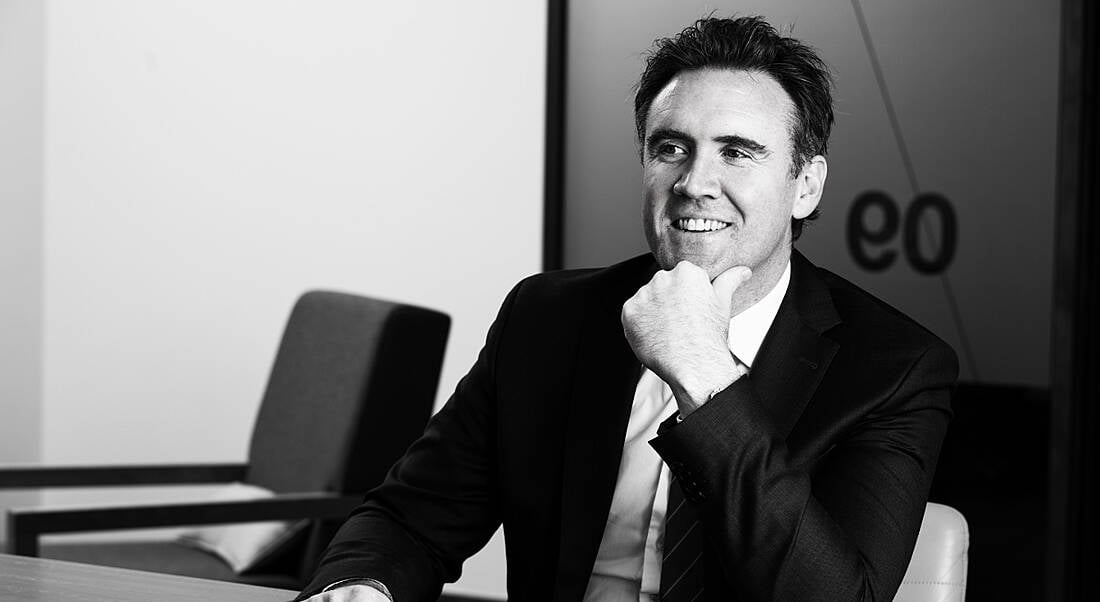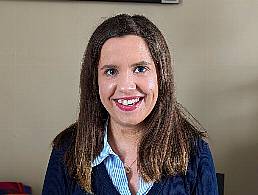Danny Buckley, an EY partner in CFO advisory services, discusses his winding career path from law to accounting.
Danny Buckley sees himself as “a boomerang”. He is currently a partner in the CFO advisory services team at EY Ireland, having moved from practice into industry and back again, and facing some tough decisions and new challenges throughout the course of his winding career path.
Here, he tell us about his journey from law to accounting and why he believes there is “so much change to come” in the financial services sector.
‘Trying to prioritise the changes with the greatest impact is both challenging and hugely interesting’
– DANNY BUCKLEY
Can you explain what your current job involves?
I work with banks, aircraft lessors and financial services companies on the ever-increasing CFO agenda. The role is wide ranging and includes finance function transformation, accounting and regulatory change, finance data and process improvement, among others.
Did you always want to work in the financial services sector?
Since I started to train as an accountant, the financial services sector has always interested me. The career opportunities it offers are second to none. Even more so than when I started out, it is a really exciting time to be in financial services with growing numbers of fintechs, institutions recognising the data opportunity, the change agenda and the diverse customer types.
Was your path to EY a straightforward one?
I certainly haven’t taken a standard route to EY. I started by doing a law degree – then saw the light – and converted to accountancy. I think I am what is termed a ‘boomerang’ – someone who left practice, went into industry and has now returned to practice.
I spent 12 years in Big Four practice in financial services in audit, and then transaction services in mergers and acquisitions and due diligence. From there, I worked for the National Treasury Management Agency and Department of Finance in a unit responsible for the Irish State’s investments in the banking sector – during this intense time, I was heavily involved in the recapitalisation of the pillar banks.
In 2012, I joined the finance team at Bank of Ireland and progressed through a number of senior roles, including head of finance for retail, executive director for Bank of Ireland Mortgage Bank, divisional finance officer for the corporate and treasury division and, when I finished in 2018, the divisional finance officer across all of the Irish divisions.
I gained fantastic experiences of the trials and tribulations of working as a CFO – all of which positioned me well for the role leading EY’s CFO advisory services. I should also mention that during this time I got married to Sarah and we are lucky enough to have four amazing daughters aged nine and under.
The decision to leave Bank of Ireland and return to practice was a tough one. However, I was absolutely convinced it was the right decision by the people I met across EY’s European financial services network, the entrepreneurial attitude espoused by the firm and the prioritisation and investment given to innovation by EY.
What do you find to be the most rewarding part of working in the industry?
The most rewarding part of working in financial services is the variety. There are different sectors, such as aircraft leasing, banking, asset management and insurance; different businesses – for example, I have worked in retail banking, corporate and treasury; different roles – I have worked in M&A, business partnering, audit, transaction services and capital investment.
And there are different clients – from financial institutions to regulators and private equity – as well as client challenges, from accounting change to process change.
All of this variety has resulted in having plenty of relationships around Dublin and more broadly.
What is the most challenging aspect of your job?
Keeping on top of the continually changing environment that my clients are working in. There is so much change that has happened – so much change in progress and so much change to come. Keeping abreast of this agenda and trying to prioritise the changes with the greatest impact is both challenging and hugely interesting.
Technology and data are making significant leaps forward – harnessing these powerful developments will be a key challenge and, of course, implementing these changes in the right way creates a huge opportunity. This is an area that really interests me.
What are the most important soft skills and characteristics of a great finance professional, do you think?
To my mind, being able to listen, influencing stakeholders, understanding the motivations of the people you are dealing with and an ability to negotiate. Whether you know it or not, you are always negotiating!
Do you have any advice for people just starting out in financial services?
Take time to think about your career. Try and align your skills with the direction of travel for financial services. For example, if you see the future for financial services is going to be much more focused on data, how are you going to align yourself with this?
In general – be it financial services or any industry – my own view is that a positive ‘can do’ attitude is the most important attribute to have.
Always seek out and take on new opportunities and back yourself to do them – both inside and outside of work. This will help broaden your experience, your ability to adapt to different roles and your network.
I am also a firm believer in focusing on doing your current job well before you start thinking about the next one – you need to have your manager in your corner!
When you have this key sponsor banked – to support your career progression – you need to have other managers talking about your performance or how you have supported on an activity outside of your business as usual. Often in performance assessment meetings, it is the view of the other managers that swings promotion decisions.
Network is critical, each of my moves both inside and outside of practice has been through the network that I have developed. Do a good job for people and they will always be happy to meet for a coffee!
Are there any resources you recommend for keeping up with news in the industry or emerging trends?
The key resources for me are the Financial Times and EY’s thought leadership and publications.




